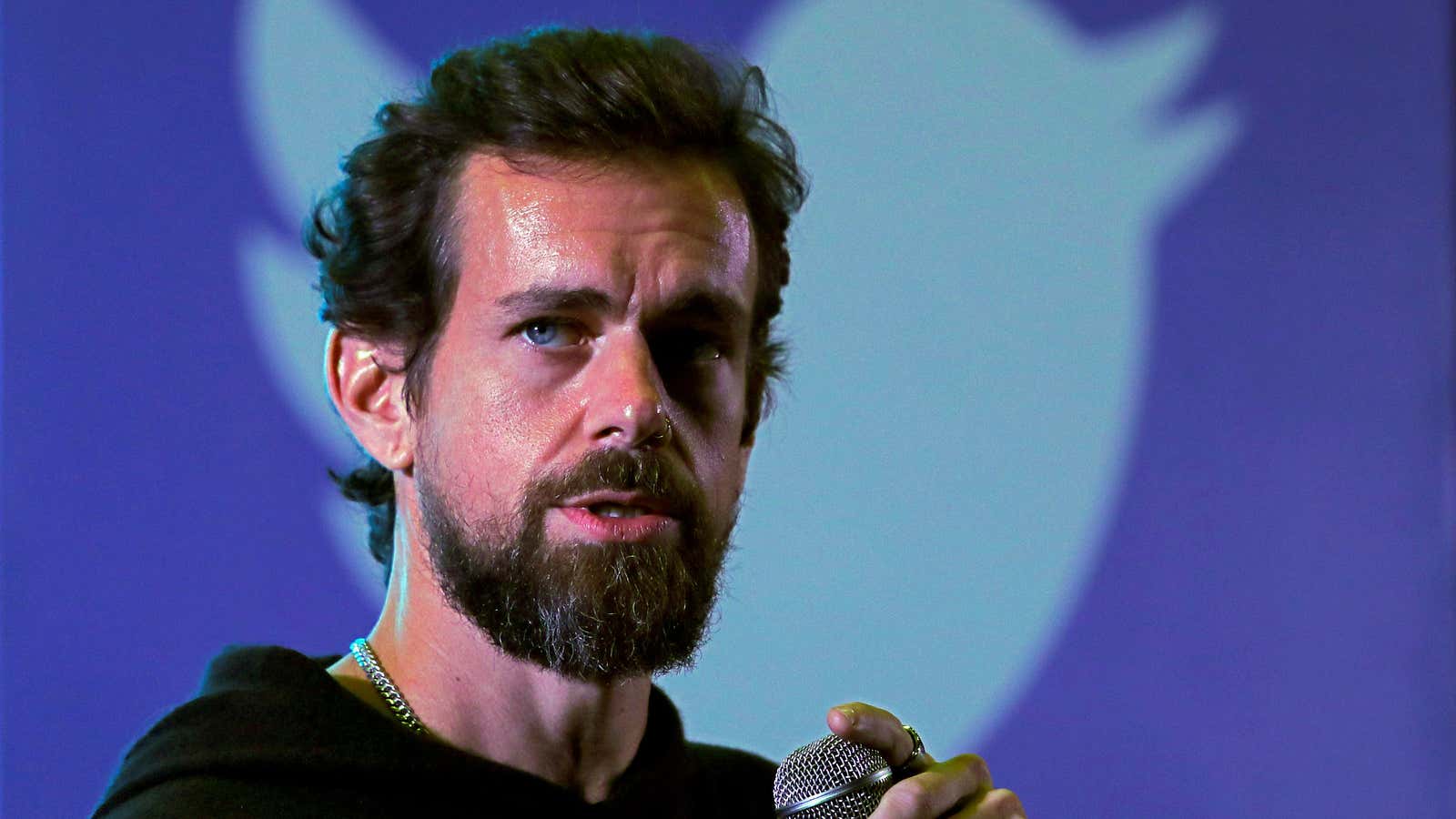In the tumult following Elon Musk’s bid to buy Twitter the only voice we haven’t heard from has been the company’s co-founder, Jack Dorsey—until now. Taking to Twitter today, Dorsey answered a couple questions posed by a Twitter user: Was Musk investing contingent on Dorsey leaving? Did Dorsey leave because of Musk? Dorsey’s answer: No.
Since the first question would be best answered by Musk, it’s likely that Dorsey is confirming the latter—that his departure had nothing to do with the Tesla founder’s constant public critique of the company. However, it’s just as interesting that Dorsey felt the need to clarify that, “I wasn’t pushed out. I left.”
The comments highlight the high pressure nature of the role of Twitter CEO. The company’s stagnant stock price reflects what many believe—while the service has captured the public’s attention it has yet to optimize its profit-making potential and overall reach.
How Twitter’s relationship with Elon quickly turned adversarial
Previously, when it appeared that Musk would join Twitter’s board, Dorsey offered support for the move, saying, “I’m really happy Elon is joining the Twitter board! He cares deeply about our world and Twitter’s role in it. Parag [Agrawal] and Elon both lead with their hearts, and they will be an incredible team.” That corporate honeymoon lasted about two weeks. In the April 13 Securities and Exchange Commission filing documenting his bid, Musk confirmed, “I don’t have confidence in [Twitter’s current] management.”
During an all-hands staff meeting yesterday, Agrawal reportedly told concerned employees that the company was not being “held hostage” by Musk’s takeover bid. According to one account, when asked by one employee about the nature of Musk’s acquisition bid, Agrawal said, “Why don’t you ask him.”
Despite his avoidance of the spotlight, Agrawal, a former Twitter engineer not given to bold public statements like Musk and Dorsey, may increasingly be compelled to take a more aggressive public stance on the company’s future.
Twitter’s future is now in flux, whether Elon is involved, or not
Musk’s bid has kicked off speculation that other entities, such as private equity firm Thoma Bravo and others, may enter the fray and start a bidding war. Additionally, Musk is no longer the largest Twitter shareholder, that title goes to the Vanguard Group, which now owns 10.3% of the company (Musk holds 9.2%) worth roughly $3.78 billion.
Today, in response to Musk’s bid, Twitter has reportedly put in place an old “poison pill” strategy. The move would prevent a hostile takeover by allowing Twitter to inundate the market with new shares or offer discounted shares to shareholders if an entity looking to buy Twitter amasses more than 15% of the company.
“As a public company, Twitter has always been “for sale,’” wrote Dorsey, adding to his remarks on Musk’s bid. “That’s the real issue.”
Dorsey and Musk reveal what they really think about Twitter’s board
Over the weekend, Dorsey continued to discuss the Twitter situation, taking specific aim at its board of directors. In response to one user who commented that “Good boards don’t create good companies, but a bad board will kill a company every time,” Dorsey replied, “Big facts.” Then, addressing another user who cited longstanding “plots and coups” on the Twitter board, Dorsey added, “It’s consistently been the dysfunction of the company.”
Around the same time, Musk noted on Twitter, “With Jack departing, the Twitter board collectively owns almost no shares! Objectively, their economic interests are simply not aligned with shareholders.” The eccentric billionaire also surfaced, via emoji, an old tweet that indicates he has been thinking about buying Twitter since at least 2017.
On Monday, Musk renewed his campaign to buy the company by suggesting a different kind of shakeup to the board. “Board salary will be $0 if my bid succeeds,” wrote Musk, “So that’s ~$3M/year saved right there.”
This story has been updated to include additional tweets Dorsey and Musk sent on April 16,17, and 18.
